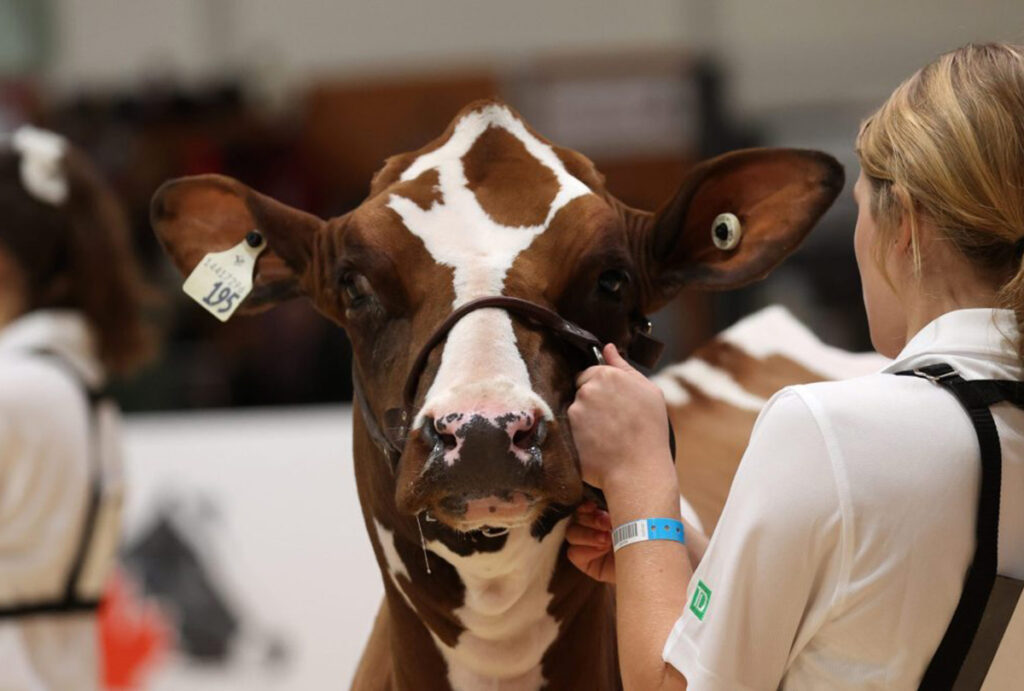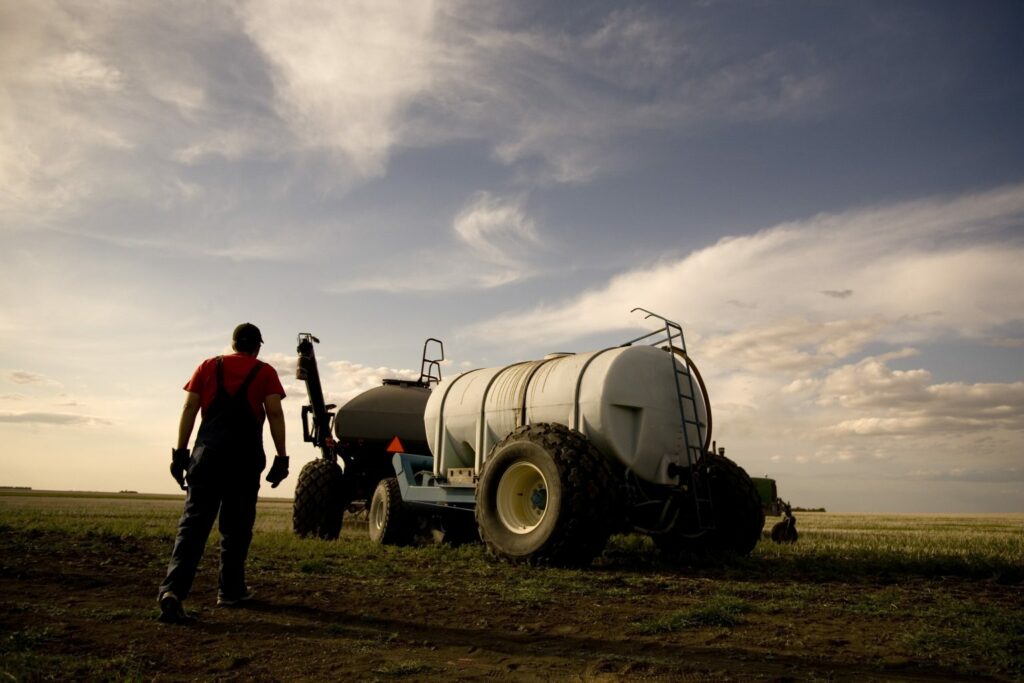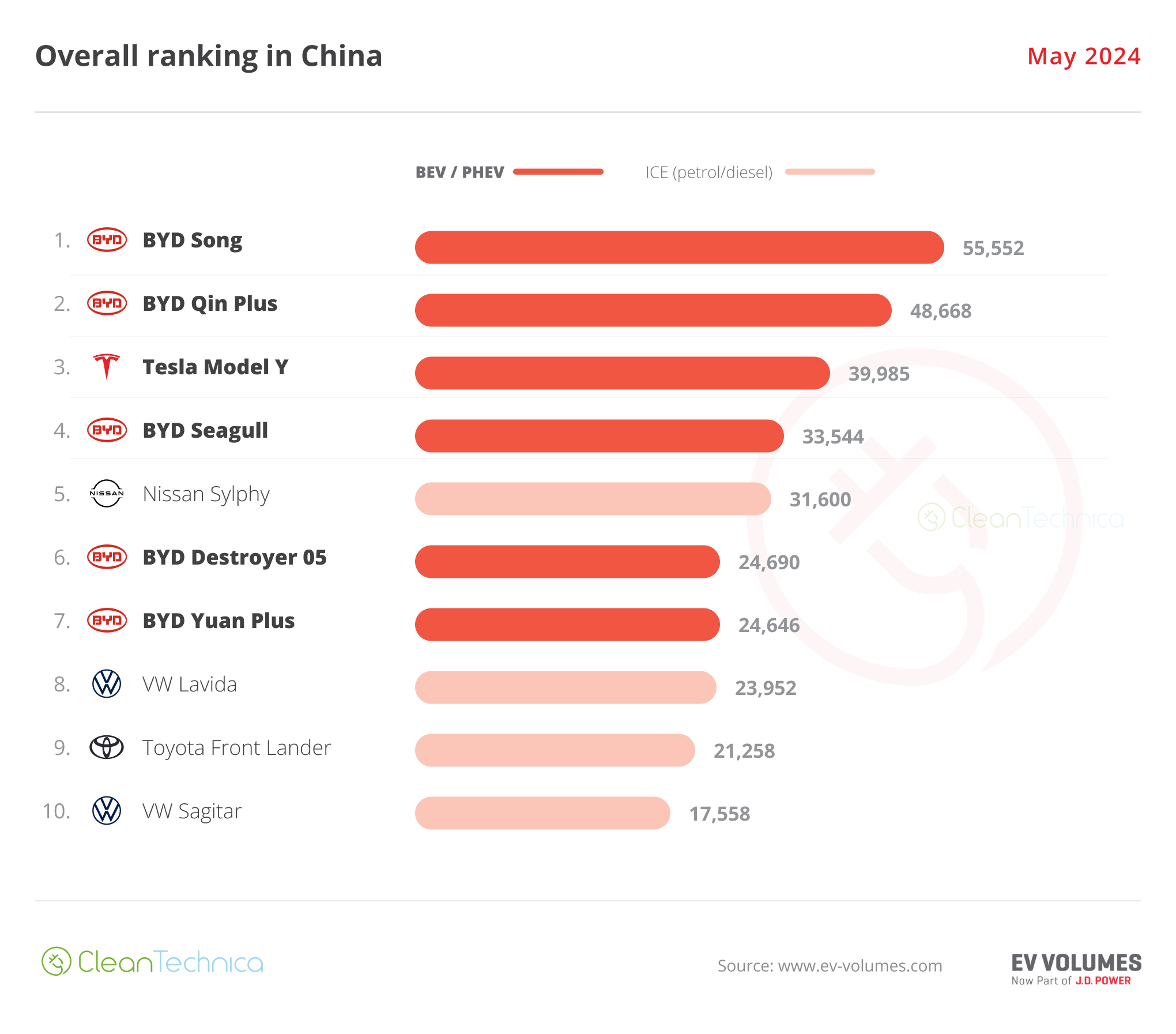‘Agriculture requires fuel, and it requires lubricants. It requires heat and electricity. Modern agriculture can’t be done without energy’
Follow CEC on LinkedIn CEC LinkedIn
Follow CEC on Facebook CEC Facebook
Follow CEC on Twitter CEC Twitter

General view of the ‘TD Canadian 4-H Dairy Classic Showmanship’ within the 101st edition of Royal Agricultural Winter Fair at Exhibition Place in Toronto, Ontario, on November 6, 2023. The Royal is the largest combined indoor agriculture fair and international equestrian competition in the world. Getty Images photo
Agriculture and oil and gas are two of Canada’s biggest businesses – and they are closely linked, industry leaders say.
From nitrogen-based fertilizer to heating and equipment fuels, oil and gas are the backbone of Canada’s farms, providing food security for Canadians and exports to nearly 200 countries around the world.
“Canada is a country that is rich in natural resources, and we are among the best, I would even characterize as the best, in terms of the production of sustainable energy and food, not only for Canadians but for the rest of the world,” said Don Smith, chief operating officer of the United Farmers of Alberta Co-operative.
“The two are very closely linked together… Agriculture requires fuel, and it requires lubricants. It requires heat and electricity. Modern agriculture can’t be done without energy, and it is a significant portion of operating expenses on a farm.”
The need for stable food sources is critical to a global economy whose population is set to reach 9.7 billion people by 2050.
The main pillars of food security are availability and affordability, said Keith Currie, president of the Canadian Federation of Agriculture (CFA).
“In Canada, availability is not so much an issue. We are a very productive country when it comes to agriculture products and food products. But food affordability has become an issue for a number of people,” said Currie, who is also on the advisory council for the advocacy group Energy for a Secure Future.
The average price of food bought in stores increased by nearly 25 per cent over the last five years, according to Statistics Canada.
Restricting access to oil and gas, or policies like carbon taxes that increase the cost for farmers to use these fuels, risk increasing food costs even more for Canadians and making Canadian food exports less attractive to global customers, CFA says.
“Canada is an exporting nation when it comes to food. In order for us to be competitive we not only have to have the right trade deals in place, but we have to be competitive price wise too,” Currie said.

Under an incredible Saskatchewan sky, a farmer walks toward his air seeder to begin the process of planting this year’s crop. Getty Images photo
Canada is the fifth-largest exporter of agri-food and seafood in the world, exporting approximately $93 billion of products in 2022, according to Agriculture Canada.
Meanwhile, Canadians spent nearly $190 billion on food, beverage, tobacco and cannabis products in 2022, representing the third-largest household expenditure category after transportation and shelter.
Currie said there are opportunities for renewable energy to help supplement oil and gas in agriculture, particularly in biofuels.
“But we’re not at a point from a production standpoint or an overall infrastructure standpoint where it’s a go-to right away,” he said.
“We need the infrastructure and we need probably a lot of incentives before we can even think about moving away from the oil and gas sector as a supplier of energy right now.”
Worldwide demand for oil and gas in the agriculture sector continues to grow, according to CEC Research.
Driven by Africa and Latin America, global oil use in agriculture increased to 118 million tonnes of oil equivalent (Mtoe) in 2022, up from 110 million tonnes in 1990.
Demand for natural gas also increased — from 7.5 Mtoe in 1990 to 11 Mtoe in 2022.
Sylvain Charlebois, senior director, in the Agri-Food Analytics Lab at Dalhousie University, said food security depends on three pillars – access, safety, and affordability.
“Countries are food secure on different levels. Canada’s situation I think is envious to be honest. I think we’re doing very well compared to other countries, especially when it comes to safety and access,” said Charlebois.
“If you have a food insecure population, civil unrest is more likely, tensions, and political instability in different regions become more of a possibility.”
As a country, access to affordable energy is key as well, he said.
“The food industry highly depends on energy sources and of course food is energy. More and more we’re seeing a convergence of the two worlds – food and energy… It forces the food sector to play a much larger role in the energy agenda of a country like Canada.”
The unaltered reproduction of this content is free of charge with attribution to Canadian Energy Centre Ltd.
Share This:




